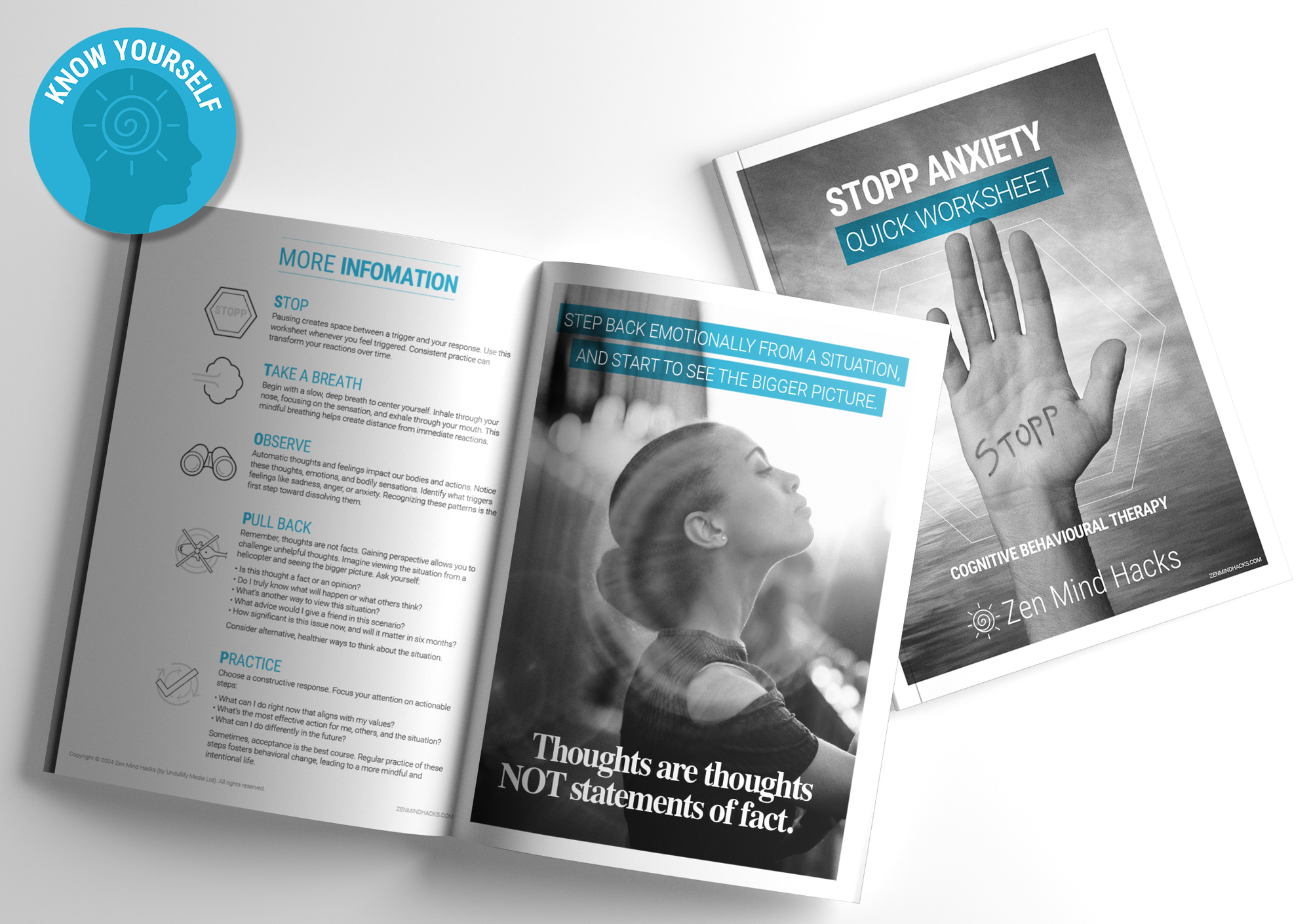Cognitive Behavioral Therapy
Your thoughts affect your feelings, which can become behaviors

My experience with CBT
Many years ago, a therapist asked me to imagine the worst thing that could happen to me and write it down in a detailed story. I've got a good imagination, so I vividly brought this to life. I penned an incredibly dark version of future events.
This was towards the end of 10 sessions to treat health anxiety. My dad died of cancer when I was 16. This left its mark on me. I would catastrophize around any health ailments. My thoughts would create symptoms in my body.
My therapist taught me the techniques of CBT (cognitive behavioral therapy). Initially, I was unconvinced. I didn't think I needed help and wasn't aware of how negative my thought patterns were. I was wrong. Behavior change takes time. I didn't understand until later how much the treatment benefited me.
The therapist never read my story. They weren't trying to gain insight into my personality; it was an exercise in releasing thoughts.
I recommend seeing a CBT therapist, but it also provides mind tools to improve mental well-being. By coaching yourself, you can change your thoughts, which will change how you feel and, ultimately, your behaviors.
What is cognitive behavioral therapy?

Unwanted intrusive thoughts, such as distressing or fearful thoughts, can enter your mind unbidden. It's normal for everyone to have intrusive thoughts.
CBT helps individuals understand the interconnectedness of their thoughts, feelings, and behaviors. CBT states it's not events that cause emotional distress but our interpretations of those events. For example, if someone ignores you, you could interpret it as a personal rejection. It could lead to feelings of depression, anxiety, or anger. By recognizing and challenging negative thought patterns, individuals can change their emotional responses and behaviors.
